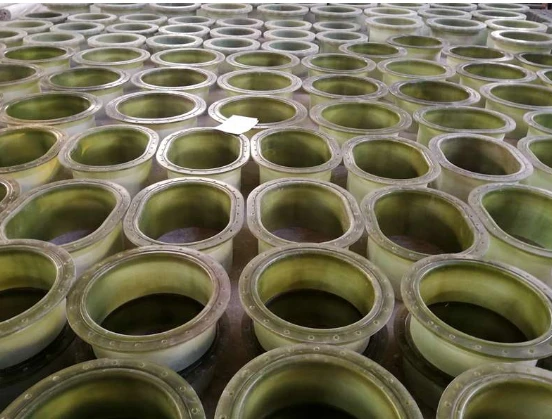
-
 Afrikaans
Afrikaans -
 Albanian
Albanian -
 Amharic
Amharic -
 Arabic
Arabic -
 Armenian
Armenian -
 Azerbaijani
Azerbaijani -
 Basque
Basque -
 Belarusian
Belarusian -
 Bengali
Bengali -
 Bosnian
Bosnian -
 Bulgarian
Bulgarian -
 Catalan
Catalan -
 Cebuano
Cebuano -
 China
China -
 China (Taiwan)
China (Taiwan) -
 Corsican
Corsican -
 Croatian
Croatian -
 Czech
Czech -
 Danish
Danish -
 Dutch
Dutch -
 English
English -
 Esperanto
Esperanto -
 Estonian
Estonian -
 Finnish
Finnish -
 French
French -
 Frisian
Frisian -
 Galician
Galician -
 Georgian
Georgian -
 German
German -
 Greek
Greek -
 Gujarati
Gujarati -
 Haitian Creole
Haitian Creole -
 hausa
hausa -
 hawaiian
hawaiian -
 Hebrew
Hebrew -
 Hindi
Hindi -
 Miao
Miao -
 Hungarian
Hungarian -
 Icelandic
Icelandic -
 igbo
igbo -
 Indonesian
Indonesian -
 irish
irish -
 Italian
Italian -
 Japanese
Japanese -
 Javanese
Javanese -
 Kannada
Kannada -
 kazakh
kazakh -
 Khmer
Khmer -
 Rwandese
Rwandese -
 Korean
Korean -
 Kurdish
Kurdish -
 Kyrgyz
Kyrgyz -
 Lao
Lao -
 Latin
Latin -
 Latvian
Latvian -
 Lithuanian
Lithuanian -
 Luxembourgish
Luxembourgish -
 Macedonian
Macedonian -
 Malgashi
Malgashi -
 Malay
Malay -
 Malayalam
Malayalam -
 Maltese
Maltese -
 Maori
Maori -
 Marathi
Marathi -
 Mongolian
Mongolian -
 Myanmar
Myanmar -
 Nepali
Nepali -
 Norwegian
Norwegian -
 Norwegian
Norwegian -
 Occitan
Occitan -
 Pashto
Pashto -
 Persian
Persian -
 Polish
Polish -
 Portuguese
Portuguese -
 Punjabi
Punjabi -
 Romanian
Romanian -
 Russian
Russian -
 Samoan
Samoan -
 Scottish Gaelic
Scottish Gaelic -
 Serbian
Serbian -
 Sesotho
Sesotho -
 Shona
Shona -
 Sindhi
Sindhi -
 Sinhala
Sinhala -
 Slovak
Slovak -
 Slovenian
Slovenian -
 Somali
Somali -
 Spanish
Spanish -
 Sundanese
Sundanese -
 Swahili
Swahili -
 Swedish
Swedish -
 Tagalog
Tagalog -
 Tajik
Tajik -
 Tamil
Tamil -
 Tatar
Tatar -
 Telugu
Telugu -
 Thai
Thai -
 Turkish
Turkish -
 Turkmen
Turkmen -
 Ukrainian
Ukrainian -
 Urdu
Urdu -
 Uighur
Uighur -
 Uzbek
Uzbek -
 Vietnamese
Vietnamese -
 Welsh
Welsh -
 Bantu
Bantu -
 Yiddish
Yiddish -
 Yoruba
Yoruba -
 Zulu
Zulu
corrosion resistant fiberglass
Corrosion Resistant Fiberglass The Future of Material Durability
In an era where industries are constantly seeking materials that can withstand harsh environments, corrosion-resistant fiberglass has emerged as a leading solution. With its unique blend of properties, this composite material is revolutionizing applications across various sectors, from chemical processing to construction.
Corrosion, the gradual destruction of materials, typically metals, due to chemical reactions with their environment, poses a significant challenge in many industries. It not only leads to increased maintenance costs but also poses safety risks. Traditional materials, such as steel and aluminum, often fall prey to rust and degradation when exposed to moisture, chemicals, and extreme temperatures. In contrast, corrosion-resistant fiberglass offers a resilient alternative.
Corrosion Resistant Fiberglass The Future of Material Durability
In addition to its chemical resistance, fiberglass is also lightweight yet incredibly strong. This combination allows for easier transportation and installation, reducing labor costs and time on construction projects. The lightweight nature of fiberglass makes it an attractive option for industries like aerospace and automotive, where weight savings can lead to improved fuel efficiency.
corrosion resistant fiberglass

Another notable advantage of corrosion-resistant fiberglass is its versatility. It can be molded into a variety of shapes and sizes, making it suitable for a wide range of applications—from piping and tanks to structural components and panels. In the construction sector, fiberglass-reinforced plastics (FRP) are increasingly used for staircases, walkways, and bridges, providing durability without the risk of rust or decay.
Furthermore, fiberglass is known for its low thermal and electrical conductivity, making it an excellent insulator. This quality adds to its appeal in industries that require materials to withstand high temperatures or that need electrical insulation, further enhancing its applications and reducing the risk of hazards associated with corrosion.
Environmentally, fiberglass is also a more sustainable option compared to traditional materials. As industries strive for greener practices, the longevity and durability of fiberglass result in less waste and frequency of replacement. Moreover, advancements in recycling technologies are increasingly allowing for the recycling of fiberglass, further reducing its environmental footprint.
While the benefits of corrosion-resistant fiberglass are substantial, it is essential to recognize that the production and use of fiberglass must be approached with care. The glass fibers can pose health risks if inhaled or handled improperly, and the manufacturing process can produce waste that needs to be managed responsibly. Therefore, adhering to safety protocols and environmental regulations is crucial in the application of this remarkable material.
In conclusion, corrosion-resistant fiberglass represents a significant advancement in material science, offering unmatched durability and resilience in corrosive environments. Its unique combination of strength, lightweight nature, versatility, and low maintenance requirements makes it an invaluable asset in various industries. As technology continues to evolve, we can expect to see even broader applications of fiberglass, paving the way for more sustainable and safer industrial practices. Embracing this innovative material not only allows for enhanced performance but also signifies a commitment to quality and environmental responsibility—a true testament to the future of material durability.
Latest news
-
Exploring the Benefits of Top Hammer Drifter Rods for Enhanced Drilling PerformanceNewsJun.10,2025
-
High-Precision Fiberglass Winding Machine for GRP/FRP Pipe Production – Reliable & Efficient SolutionsNewsJun.10,2025
-
FRP Pipes & Fittings for Shipbuilding - Corrosion-Resistant & LightweightNewsJun.09,2025
-
Premium FRP Flooring Solutions Durable & Slip-ResistantNewsJun.09,2025
-
Premium Fiberglass Rectangular Tanks Durable & Lightweight SolutionNewsJun.09,2025
-
Tapered Drill String Design Guide Durable Performance & UsesNewsJun.09,2025









